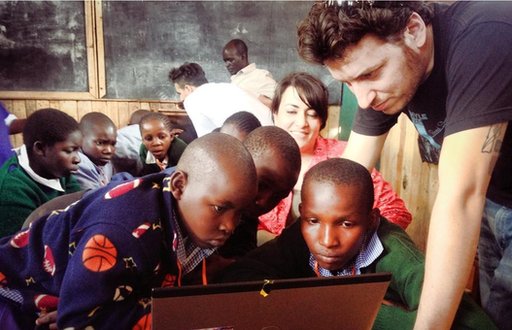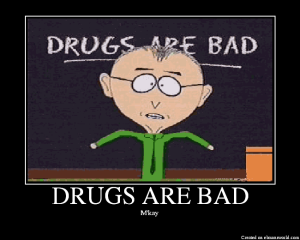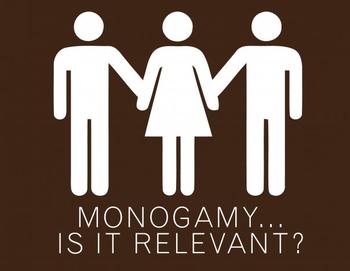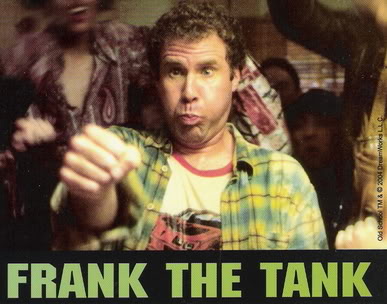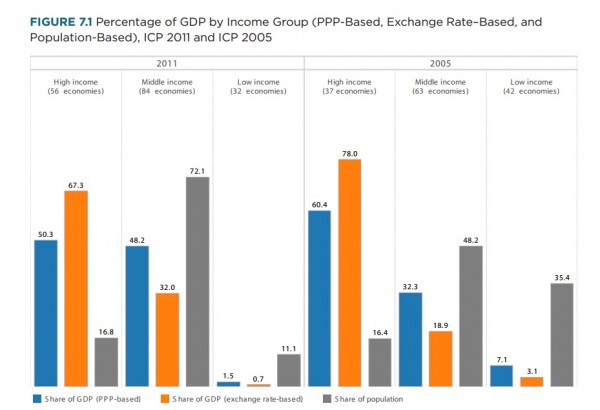
If you aren’t familiar with the term, trigger warnings are disclaimers that folks put at the top of blog posts (or other written materials) which they believe may cause post-traumatic stress reactions in some readers. As The Guardian describes it:
In the early days of feminist blogging, trigger warnings were generally about sexual assault, and posted with the understanding that lots of women are sexual assault survivors, lots of women read feminist blogs, and graphic descriptions of rape might lead to panic attacks or other reactions that will really ruin someone’s day. Easy enough to give readers a little heads up – a trigger warning – so that they can decide to avoid that material if they know that discussion of rape triggers debilitating reactions.
This makes sense to me. Although I do not have traumatic experiences in my own past, and am grateful for that fact, even I have been seriously affected by particularly tragic or graphic news stories. I have also seen people have real-world reactions to topics of rape or sexual assault that have convinced me that there is a legitimate concern. I don’t know that I”m really up-to-speed on exactly when and how to issue a trigger warning, but the general principle seems both sensible and compassionate. Recently, however, I came across a piece in my exploration of the sci-fi political controversy that had nine trigger warnings: “slurs, ableism, racism, sexism, transmisogyny, homophobia, xenophobia, anti-semitism, colonialism.”
I found the whole list a bit odd. I try to be empathic and compassionate, but this seemed to be pushing it. When I got to to “colonialism” there at the end I found I had passed my limit. I just can’t take that seriously. In fact, I think such absurd over-sensitivity is downright counter-productive. For starters, it seems disrespectful to those suffering with Rape Trauma Syndrome to put them in the same category as people who are sad about the history of colonialism. It turns the whole thing into a joke. And that’s not just bad for victims of rape. It’s bad for all of us because it makes people who care about these kinds of issues look totally insane. Which is why we get pieces like Big Boy Panties from the Mad Genius Club (a group blog run by conservative sci-fi writers):
Seriously. You now need to put a warning label on a blog post or something because somewhere, somehow, someone might have a reaction to something that may or may not cause them to react in a way… that’s a lot of stinking cow excremental right there. Aside from our usual society response to any sort of speech which might deemed “racist” (oh yeah, I used air quotes when I typed that), we now have this burning need to placate individuals who forgot their big boy panties and now must be warned before reading something.
See, if trigger warnings were used exclusively for discussion of rape and sexual assault I would respond to someone like this by saying, “No, you don’t really get it. There’s a legitimate reason for this.” But I can’t really do that now, because this person will just point to “trigger warning: colonialism” and collapse in a fit of hysterical laughter. I want to stake out a moderate middle position, but it’s hard when the left and right are both doing the absolute darnedest to live down to their stereotypes: irrational sentimentality on the one hand and unflinching callousness on the other. Not that conservatives are the only ones to complain that the trigger warning thing has gone way, way too far. The article from the Guardian that I quoted at the top is actually headlined: We’ve gone too far with ‘trigger warnings’, and it has an even more impressive list of trigger warnings then the one I found, including:
misogyny, the death penalty, calories in a food item, terrorism, drunk driving, how much a person weighs, racism, gun violence, Stand Your Ground laws, drones, homophobia, PTSD, slavery, victim-blaming, abuse, swearing, child abuse, self-injury, suicide, talk of drug use, descriptions of medical procedures, corpses, skulls, skeletons, needles, discussion of “isms,” neuroatypical shaming, slurs (including “stupid” or “dumb”), kidnapping, dental trauma, discussions of sex (even consensual), death or dying, spiders, insects, snakes, vomit, pregnancy, childbirth, blood, scarification, Nazi paraphernalia, slimy things, holes and “anything that might inspire intrusive thoughts in people with OCD“.
Seriously. We’ve gone from “rape” to trigger warnings for spiders, holes, and slimy things. But it’s much worse than just over-sensitivity. Colleges are starting to either require trigger warnings or just encourage teachers to remove material from the curricula that might be triggering.
Oberlin College recommends that its faculty “remove triggering material when it does not contribute directly to the course learning goals”. When material is simply too important to take out entirely, the college recommends trigger warnings.
 And we’re not talking hardcore stuff, here. The classical work Things Fall Apart (which I read as a freshman) is listed as an example, and requires trigger warnings for: “racism, colonialism, religious persecution, violence, suicide, and more.” I realize that a trigger warning is not the same thing as outright censoring, but the trend is deeply disturbing and illustrates the conservative case that even if your intentions are laudable the end result can be sinister. The trigger warning logic isn’t just about adding disclaimers to what you read, it’s about reading less. It’s about removing objectionable work (and all work can be classified as objectionable on the basis of triggering someone somewhere). It’s not about individuals opting out of particular works as a matter of conscience (as conservatives sometimes do), but about applying rigidly overprotective standards for everyone.
And we’re not talking hardcore stuff, here. The classical work Things Fall Apart (which I read as a freshman) is listed as an example, and requires trigger warnings for: “racism, colonialism, religious persecution, violence, suicide, and more.” I realize that a trigger warning is not the same thing as outright censoring, but the trend is deeply disturbing and illustrates the conservative case that even if your intentions are laudable the end result can be sinister. The trigger warning logic isn’t just about adding disclaimers to what you read, it’s about reading less. It’s about removing objectionable work (and all work can be classified as objectionable on the basis of triggering someone somewhere). It’s not about individuals opting out of particular works as a matter of conscience (as conservatives sometimes do), but about applying rigidly overprotective standards for everyone.
It is deeply and tragically ironic that important literary works by minority voices who come from cultures that have suffered under colonial imperialism are now on the verge of being suppressed by the folks who claim to be the most concerned with colonial imperialism. Shouldn’t we be encouraging more people to read a book by Africa’s leading literary voice that includes discussions of the impact of colonialism on Africa precisely because the history is so tragic that it can be distressing? Is this what it looks like when radical ideology begins to eat its own tail?
Even The New Republic can see that this trend, especially when it comes to colleges, is both absurd and ominous: Trigger Happy: The “trigger warning” has spread from blogs to college classes. Can it be stopped? The article starts with another collegiate example:
Last week, student leaders at the University of California, Santa Barbara, passed a resolution urging officials to institute mandatory trigger warnings on class syllabi. Professors who present “content that may trigger the onset of symptoms of Post-Traumatic Stress Disorder” would be required to issue advance alerts and allow students to skip those classes.
Sounds OK in principle, but in practice it makes you wonder if there’s anything that won’t need a trigger warning. Over at Rutgers, a “sophomore suggested that an alert for F. Scott Fitzgerald’s The Great Gatsby say, “TW: suicide, domestic abuse and graphic violence.” Really, is there a single work of serious literature that wouldn’t require a whole slew of trigger warnings? Off hand, I can’t think of one.
This, my fellow moderates and sane people on the left and right, is why we can’t have nice things. And let it no longer be said that censorship is primarily a hobby of the right! On the plus side, evangelical Christians who protested that Harry Potter promoted satanism will at least now have some company out there in loony town. Let this be further evidence that the real conflict is not left vs. right, but rather reasonable vs. not-reasonable.
Now, maybe this kind of insanity is just part of life on Earth. I’m sure there’s some truth to that. This is hardly the first time ever that someone has taken an otherwise good idea too far. That’s pretty much what history is all about. But in conjunction with the political infighting that is splitting the sci-fi community apart and partisanship in the US to all-time highs I have to wonder if there’s something about social media and the way it lets us democratize the spread of ideas that is turning what used to be a nuisance into a major hazard. Think about the way improving technology led ancient societies to gradually shift from rural to urban communities. A lot of good came from that, but sticking so many people in confined areas created new problems for the spread of disease. Well, on the Internet, “some dumb idea” is the effective equivalent of disease. The whole trigger warning nonsense (and it has become nonsense, even if it didn’t start out that way) is no dumber than stupid ideas of the past, but it has a chance to spread much more widely and quickly.
That’s the downside to free flow of information, folks. You all get to go and watch TED talks and get your minds expanded, but stupid fads like trigger warnings for spiders and holes get a chance to infect our brains, too. It’s all fun and games when your relatives send stupid stories that they should have checked on Snopes first, but once these infectious idiocies start sprouting up as official policies on college campuses we’re officially in trouble. As long as this is an Internet-only phenomena, it’s just one more thing to complain about. Once it hits the real world
